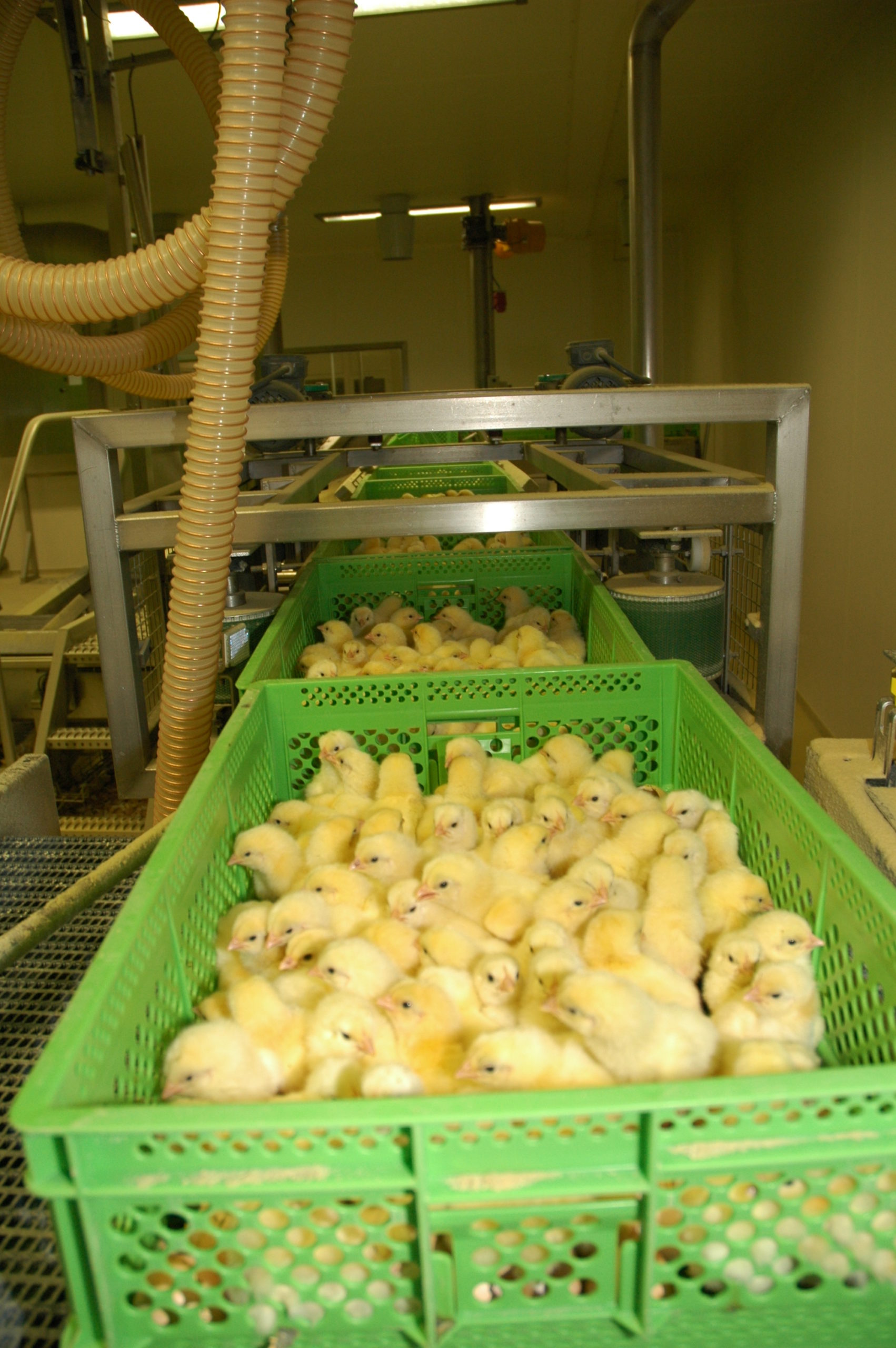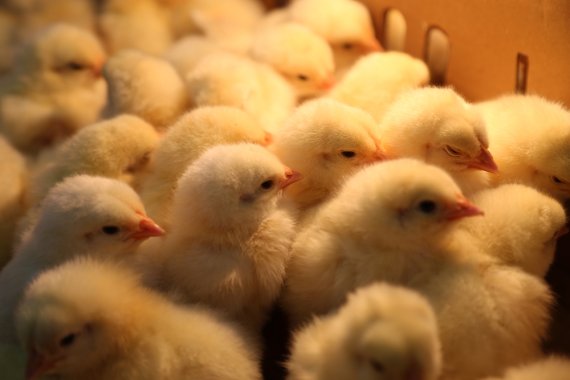© Shutterstock
In poultry farming, eggs are hatched in a machine in a hatchery. Only once most of the eggs have hatched are the chicks collected, sorted, vaccinated and transported to the farm where they will stay until they are slaughtered.
‘If they are transported over a great distance, it can take three days before the chicks that hatched first get anything to eat or drink,’ says Ingrid de Jong, animal welfare researcher at Wageningen Livestock Research. She says this is rare in the Netherlands because most chicks reach a farm within 36 hours of being hatched.

kuikens in de broederij net nadat ze zijn uitgekomen. © Roos Molenaar, Adaptatiefysiologie
Lawsuit
Wakker Dier finds it unacceptable that the chicks do not get food and water immediately. The organization filed a lawsuit against the Ministry of Economic Affairs, claiming this was damaging animal welfare. The ministry asked WUR if this is indeed the case. De Jong and her colleagues analysed the available scientific literature. It showed that chicks that are given no food and drink for 36 to 60 hours lose weight. There are adverse effects in the in the long term as well: there are more deaths and the chicks do not grow so well up to the age of six weeks, which is when broiler chickens are usually slaughtered.

The main argument is that the chicks still have a bit of the yolk in their stomachs that keeps them going. However, our results show this is not enough.
Ingrid de Jong, animal welfare researcher Wageningen Livestock Research
Welfare
However, the researchers cannot conclude that animal welfare is affected on the basis of their analysis. De Jong: ‘The higher mortality figures show that welfare is an issue. But welfare is much broader. Other indicators such as stress, susceptibility to diseases and behaviour observations are also important and they still need to be researched.’
According to De Jong, hatcheries don’t give the chicks food and drink because of the risk of infection. ‘The main argument is that the chicks still have a bit of the yolk in their stomachs that keeps them going. However, our results show this is not enough.’

